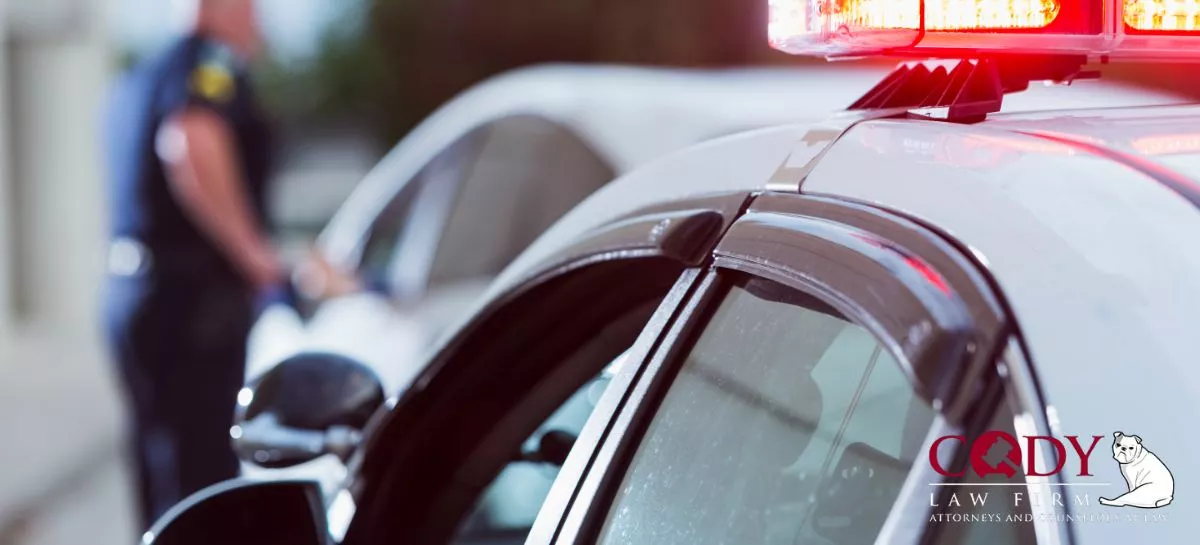Catawba County DWI Lawyer

Catawba County DWI Attorney
Driving while intoxicated (DWI) is a serious offense that can result in equally severe legal and financial consequences. Due to the dangers that driving while intoxicated presents to yourself and others on the road, it is not something that the law takes lightly. If you are facing DWI charges, then it’s critical that you contact a Catawba County DWI lawyer immediately.
Cody Law Firm’s team of experienced criminal defense lawyers can provide you with the comprehensive legal representation you need to face DWI and other related charges. We have helped thousands of clients navigate the complexities of North Carolina’s legal system to ensure that their rights are protected and that they can receive a fair and favorable outcome.
What Is a DWI?
In North Carolina, DWI is the official legal term for driving while intoxicated. If you are the legal drinking age of 21 years or older, you are legally prohibited from operating a vehicle with a blood alcohol content (BAC) of 0.08% or higher. Any individual under the age of 21 is legally prohibited from drinking any amount of alcohol, so driving with a BAC of anything above 0.00% is also against the law.
DWI also includes driving under the influence (DUI) of any illegal substances. Operating a vehicle under the influence of prescription drugs, illicit substances, and/or alcohol is considered a DWI offense in the state of North Carolina. Offenders can be subject to severe legal punishments.
What Happens After You’re Charged With a DWI in North Carolina?
If you have been charged with a DWI in Catawba County, North Carolina, there is a specific sequence of events that you can expect to go through. Whether you are guilty or not, it is important to understand what these particular stages of a DWI charge are to prepare yourself accordingly and ensure that your rights to due process are upheld by law enforcement.
Here are the typical stages of a DWI charge in North Carolina:
- Traffic Stop: The first step of any DWI case is a traffic stop conducted by a police officer. To lawfully stop you, the officer must have probable cause, meaning that they need reasonable suspicion to pull you over. Just like any traffic stop, the officer will typically ask for your license, registration, and proof of insurance.
- Field Sobriety Test: If the police officer suspects you of driving while intoxicated or under the influence, then they will usually administer a field sobriety test for you to complete. The test involves both physical and cognitive elements to properly evaluate your condition. If you fail the test, the officer will likely request that you take a breathalyzer test to measure your blood alcohol level (BAC). It’s worth noting that breathalyzer tests are not always accurate and can be challenged.
- Arrest: If you have failed the field sobriety test or the breathalyzer test, you will likely be arrested on the scene for DWI. The officer will transport you to the local police station to be booked and processed accordingly.
- Arrangement: Once you have been booked and processed for the DWI arrest, you will then be brought before a judge for a formal hearing. This is typically where you will be officially charged with DWI. During this hearing, you will have the opportunity to plead guilty or not guilty.
- Sentencing: If you plead guilty during the hearing, then you will often be sentenced by the judge right there. If you plead not guilty, then the case will proceed to trial. However, if you are found guilty of DWI, then your particular sentencing will vary depending on a number of factors, such as your exact blood alcohol level (BAC) at the time of your arrest, whether it is your first offense or you have prior convictions, along with other mitigating factors.
It is imperative for your safety, as well as the outcome of your DWI case, to cooperate fully and treat law enforcement with respect throughout each of the above stages. If you have been arrested for DWI or DUI, it’s crucial that you contact an experienced DWI lawyer as soon as possible to ensure that your legal rights are properly upheld and that you can achieve the most favorable outcome possible under the unique circumstances of your case.
What Is the Punishment for a DWI Conviction in North Carolina?
The punishment for a DUI conviction in North Carolina can vary based on a variety of mitigating factors, such as the number of offenses, your BAC, your age, and your license type. Under North Carolina state law, even a first-time DWI can lead to a temporary loss of driving privileges in addition to fines and points on your driving record.
Here are some of the common penalties associated with a DWI conviction:
- Monetary fines
- Suspension of driver’s license
- Jail time
- Community service
- Revocation of driver’s license
- Points on driving record
- Points on car insurance record
- Increase in car insurance rates
It’s important to note that the above list does not include the additional financial costs for lawyers fees, court fees, and potential lost wages due to court appearances or a DWI conviction potentially affecting your employment status.
FAQs
Q: How Much Is a DWI Lawyer in North Carolina?
A: In North Carolina, a DWI lawyer is typically going to cost around $2,500. As with any legal case, the exact cost can vary depending on the severity and complexity of the case, the overall experience level of the attorney, whether the case is brought to trial, and many other factors.
Q: Do I Need a Lawyer for a DWI Charge in North Carolina?
A: Legally, you are not required to hire a lawyer for a DWI charge in North Carolina, but it is highly recommended. An experienced DWI lawyer can provide you with sound legal advice, collect relevant evidence pertaining to your case, and negotiate with the prosecution to potentially reduce the penalties or even dismiss the charges.
Q: What Is the Difference Between DUI and DWI in North Carolina?
A: The state of North Carolina does not legally recognize the difference between a DUI and a DWI. State law recognizes Driving Under the Influence (DUI) as simply another form of Driving While Intoxicated (DWI), according to North Carolina’s Safe Roads Act of 1983, regardless of whether it was caused by alcohol or illegal substances.
Q: Is a DUI a Criminal Offense in North Carolina?
A: North Carolina generally classifies both DUI and DWI charges as misdemeanor offenses. However, there are some exceptions. For example, they can both be classified as felonies if they are habitual offenses, meaning that someone is convicted of either a DUI or DWI three or more times within a 10-year window.
Consult With Reputable DWI Lawyers Today
Driving while intoxicated or under the influence of illegal substances carries strict repercussions for those who are convicted of such charges. That is why it is essential to the long-term future of yourself or anyone who has been charged with DWI offenses to consult with a trusted criminal defense law firm.
Cody Law Firm has a long-standing reputation and record of success in representing our clients and achieving the most favorable outcomes possible for their unique circumstances. Whether you are pleading guilty and looking to reduce the penalties that you are facing or pleading not guilty and fighting back to have these charges dismissed, our firm can work to negotiate aggressively on your behalf.
Contact us today to schedule a consultation with our team so that we can evaluate your unique case.






